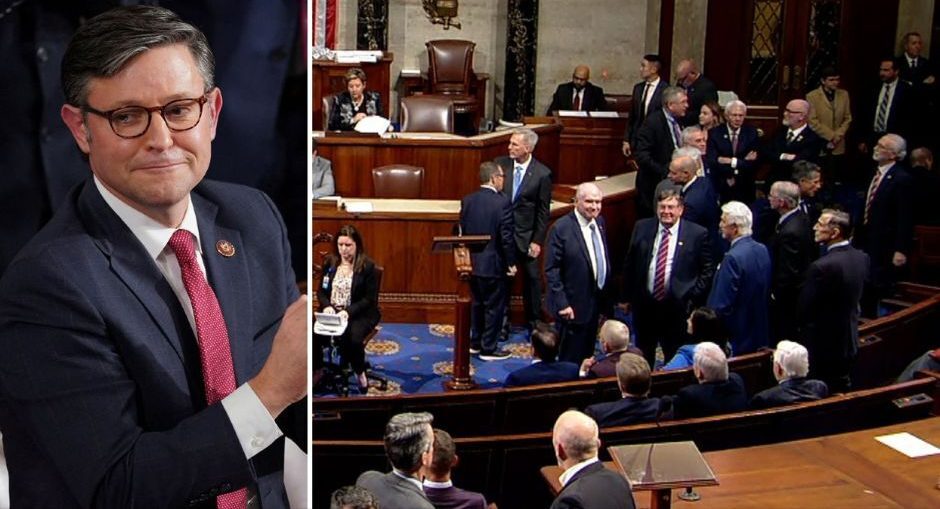Republicans Eye 2026 Gains as Texas Moves to Redraw Key Congressional Districts
Texas Governor Greg Abbott announced on Wednesday that a special legislative session later this year will focus heavily on redistricting, a move that could drastically alter the landscape of the 2026 midterm elections. With Republicans holding only a slim majority in the U.S. House, the stakes couldn’t be higher.
In a press release outlining priorities for the upcoming special session, redistricting took center stage. Abbott’s office confirmed that the legislature will draft “legislation that provides a revised congressional redistricting plan in light of constitutional concerns raised by the U.S. Department of Justice.”
The Trump administration’s Department of Justice recently issued a strongly worded letter calling for immediate changes to four congressional districts—TX-09, TX-18, TX-29, and TX-33. The DOJ contends these districts are unconstitutional “coalition districts” drawn along racial lines, violating the principles of equal representation.
“It is the position of this Department that several Texas Congressional Districts constitute unconstitutional racial gerrymanders,” the DOJ’s civil rights division stated.
The warning follows landmark rulings like Allen v. Milligan and Perry v. Galveston County, which have reshaped how courts interpret race-based redistricting. In both cases, the U.S. Supreme Court and federal courts emphasized that racial gerrymandering, even when intended to empower minority voters, must meet strict constitutional standards.
In particular, the DOJ letter referenced Perry v. Galveston County, where the Fifth Circuit ruled that so-called “coalition districts”—those formed by combining several minority groups to create a majority—do not receive protection under the Voting Rights Act. The DOJ is now applying that precedent to Texas, urging a redraw of districts originally constructed under outdated legal assumptions.
“These are vestiges of an unconstitutional racially based gerrymandering past, which must be abandoned,” the DOJ stated bluntly.
Republicans see the DOJ intervention—and Abbott’s rapid response—as a golden opportunity. Redrawing districts with new legal standards could secure Republican-leaning seats and blunt Democratic gains in fast-changing urban areas like Houston and Dallas.
This redistricting push comes at a pivotal moment. Just weeks ago, the Wisconsin Supreme Court—now controlled by liberals—rejected a Democrat-backed attempt to redraw congressional maps, which could have flipped one or two GOP seats blue. The Texas move now balances that development in Republicans’ favor.
Democrats are likely to oppose the new maps, arguing they suppress minority representation. Civil rights groups have already signaled legal challenges once the new districts are revealed.
Still, with momentum building and legal precedent on their side, Republicans hope Texas will serve as a blueprint for other states navigating post-Milligan redistricting. For now, eyes are on the Lone Star State, where the redistricting battle could shape control of Congress for years to come.

Sarah Mitchell is a bestselling novelist recognized for her insightful and emotionally resonant stories that explore the complexities of human relationships. Originally from Denver, Colorado, Sarah grew up in a family of teachers who nurtured her curiosity and love for storytelling. She studied psychology at Stanford University, where she became fascinated by the intricacies of human behavior—an interest that would later shape her writing career. Sarah’s novels are praised for their nuanced characters, intricate plots, and ability to capture the subtle tensions that define love, friendship, and family ties. Her breakthrough novel, The Spaces Between Us, became an instant bestseller, lauded for its honest portrayal of strained family relationships and the fragile bonds that hold people together. Since then, she has published several works that continue to captivate audiences around the world. Outside of her writing career, Sarah is passionate about mental health advocacy and often partners with organizations to promote awareness and support for those struggling with emotional well-being. Her personal life is quieter—she enjoys hiking in the Colorado mountains, practicing yoga, and spending time with close friends. With each new book, Sarah Mitchell cements her reputation as a writer who illuminates the beauty and struggles of human connection.








